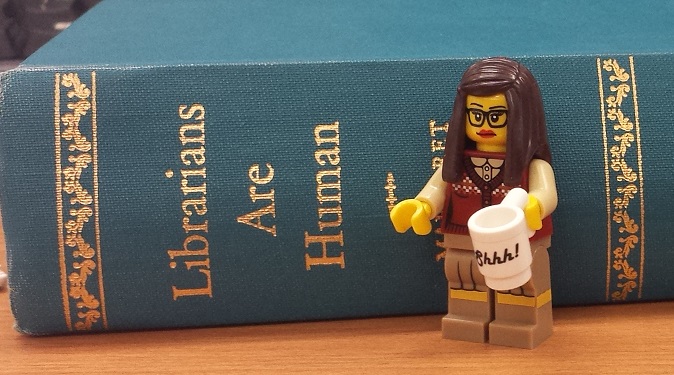Unveiling innovation in Online Learning: The HCA TEL Learn Ultra Showcase

In this post, Rose Day, Learning Technologist at the School of History, Classics, and Archaeology (HCA), highlights the HCA TEL Learn Ultra Showcase. The showcase features some of the innovative courses and provides insightful commentary from course organizers and learning technologists who played pivotal roles in their development. This post also belongs to the Spotlight on Learn Ultra series.
Starting the 23/24 academic year with a bang, HCA, along with the rest of the university, transitioned from Blackboard Learn to the new and improved Learn Ultra interface. This monumental shift aimed to deliver a more intuitive and accessible experience for both instructors and students. The process involved significant changes in the way courses were delivered online and in person, marking a transformative journey for everyone involved.
The HCA TEL Learn Ultra Showcase, spearheaded by our dedicated Learning Technologists, stands as a testament to this journey. This showcase highlights some of the most exemplary online courses within the School of History, Classics, and Archaeology (HCA) at the University of Edinburgh. Not only does it feature the innovative courses themselves, but it also provides insightful commentary from course organisers and learning technologists who played pivotal roles in their development.
Breathing Life into Ancient History: Ulf-Dietrich Schoop’s Bronze Age Civilizations Course
One standout course in this showcase is Ulf-Dietrich Schoop’s “Bronze Age Civilizations of the Near East and Greece.” This course is a prime example of how creative use of technology can enhance the learning experience. Schoop, the course organiser, envisioned an immersive virtual exhibition space where students could display their work and explore their peers’ contributions. However, his initial vision faced some practical challenges.
“I was thinking about creating a virtual exhibition space for my Honours/MSc level course ‘Bronze Age Civilisations’ where students could display some of their work for the course and look at other students’ efforts,” Schoop explains.
“While my original plans were not realistic, Rose suggested ThingLink to me, which proved to be a very interesting tool.”
ThingLink, a versatile digital tool, allowed Schoop to create an engaging and interactive learning environment. The idea was to develop a non-linear and playful space that invites students to wander around and discover both expected and unexpected elements. The result is a virtual museum with interconnected rooms, each of which representing different geographical settings covered in the course. The atmosphere of this digital museum is both intriguing and slightly eerie, akin to an “alone-in-a-slightly-creepy museum” feeling.

Ulf-Dietrich Schoop, notes
“The interconnected rooms are AI-generated 360° images; I think the (unintentional) weirdness of the AI imagery works quite well as a contrast to the ‘realness’ of the displays,”
This blend of AI-generated content and student-created displays offers a unique and immersive learning experience. However, the creation of this virtual space was not without its challenges. Schoop realised that adjustments were necessary to accommodate student-generated content.
“The museum is still a bit empty; in particular, student-generated content is missing. I realised that I had to adjust the course format to allow this to be added,” he reflects.
The flexibility of ThingLink proved to be one of its greatest strengths:
“ThingLink seems to be a very versatile tool which can be used in different ways. Neither AI-generated content nor 360° images as in my example here are necessary (I had quite a bit of fun with those, though). It works quite well with other tools we often use such as Media Hopper content,” Schoop adds.
Mastering Online Teaching: David Kaufman’s Courses on Imperial Game and British Foreign Policy
Another highlight of the showcase is David Kaufman’s courses: “An Imperial Game? Cricket, Culture & Society (online)” and “Empire or Continent? British Foreign Policy in the Era of the Great War (online).” Kaufman, with extensive experience in writing online courses for the MSc in History, aimed to refine his teaching methods to enhance clarity, accessibility, and flexibility. Kaufman explains:
“My aim for both of these courses was to essentially refine what I had been doing in the previous 8-or-so courses that I had written for the MSc in History (online). Essentially, over the years I have tried to do three things: make the structure as clear as possible for the students to follow, second, to try to provide information to the students (both in terms of how the course will be delivered, as well as what will be the focus of each seminar) on Learn, so that students do not need to contact me during the semester, the answers should be easy to find on the courses, and last, that the course can be delivered to a diverse group of students (in terms of location, availability, specific knowledge of the topic, stage of the programme, etc.),”
Kaufman’s emphasis on providing accessible information to students aligns with Anderson’s (2004) recommendations in “The Theory and Practice of Online Learning.” Anderson advocates for designing online courses that allow students to easily access necessary information and resources without needing to contact instructors frequently, thus fostering a more self-sufficient learning environment.
In “Empire or Continent?”, Kaufman employed a traditional chronological approach, grouping seminars into pre-war, war, post-war, and inter-war periods. This structure aimed to highlight the two main elements of the course while maintaining a coherent timeline.
For “An Imperial Game?”, Kaufman took a thematic approach, focusing on class, empire, race, politics, and gender.
“For this course, I wanted to focus more on themes – Class, Empire, Race, Politics, Gender – through linked topics that looked to provide examples of how a sport like cricket was both shaped by these factors, but would allow students to see how cricket could shine new light on these key themes,” Kaufman notes.
The thematic approach in “An Imperial Game?” resonates with the findings of Ke and Xie (2009) who suggest that thematic and problem-based learning approaches in online courses can enhance critical thinking and deeper engagement with the subject matter.
Embracing the Future of Education
The HCA TEL Learn Ultra Showcase not only presents innovative courses but also serves as a platform for sharing best practices and lessons learned. The collaboration between course organisers like Schoop and Kaufman and learning technologists exemplifies the synergy needed to push the boundaries of online education. Their combined efforts result in courses that are not only informative but also engaging and dynamic. As the landscape of education continues to evolve, the HCA TEL Learn Ultra Showcase remains a beacon of innovation, demonstrating the potential of technology to enrich the learning experience. Through the showcase, educators and students alike can explore new possibilities and embrace the future of online education.
References
Anderson, T. (2004). The Theory and Practice of Online Learning. Athabasca University Press.
Garrison, D. R., & Vaughan, N. D. (2008). Blended Learning in Higher Education: Framework, Principles, and Guidelines. Jossey-Bass.
Ke, F., & Xie, K. (2009). Toward deep learning for adult students in online courses. The Internet and Higher Education, 12(3-4), 136-145.
Rose Day
 As a Learning Technologist in HCA, Rose provides advice, guidance and support for a number of technology-enhanced learning initiatives. Rose works with staff to support and develop the use of these learning technologies in teaching, learning, assessment and research.
As a Learning Technologist in HCA, Rose provides advice, guidance and support for a number of technology-enhanced learning initiatives. Rose works with staff to support and develop the use of these learning technologies in teaching, learning, assessment and research.
Rose’s activities include advocating the use of learning technologies and helping staff with the design, development and evaluation of learning resources. This is achieved through a programme of courses, workshops and events, providing occasional informal 1:1 support, and creating and delivering online support materials.
Originally published on the Teaching Matters blog.




